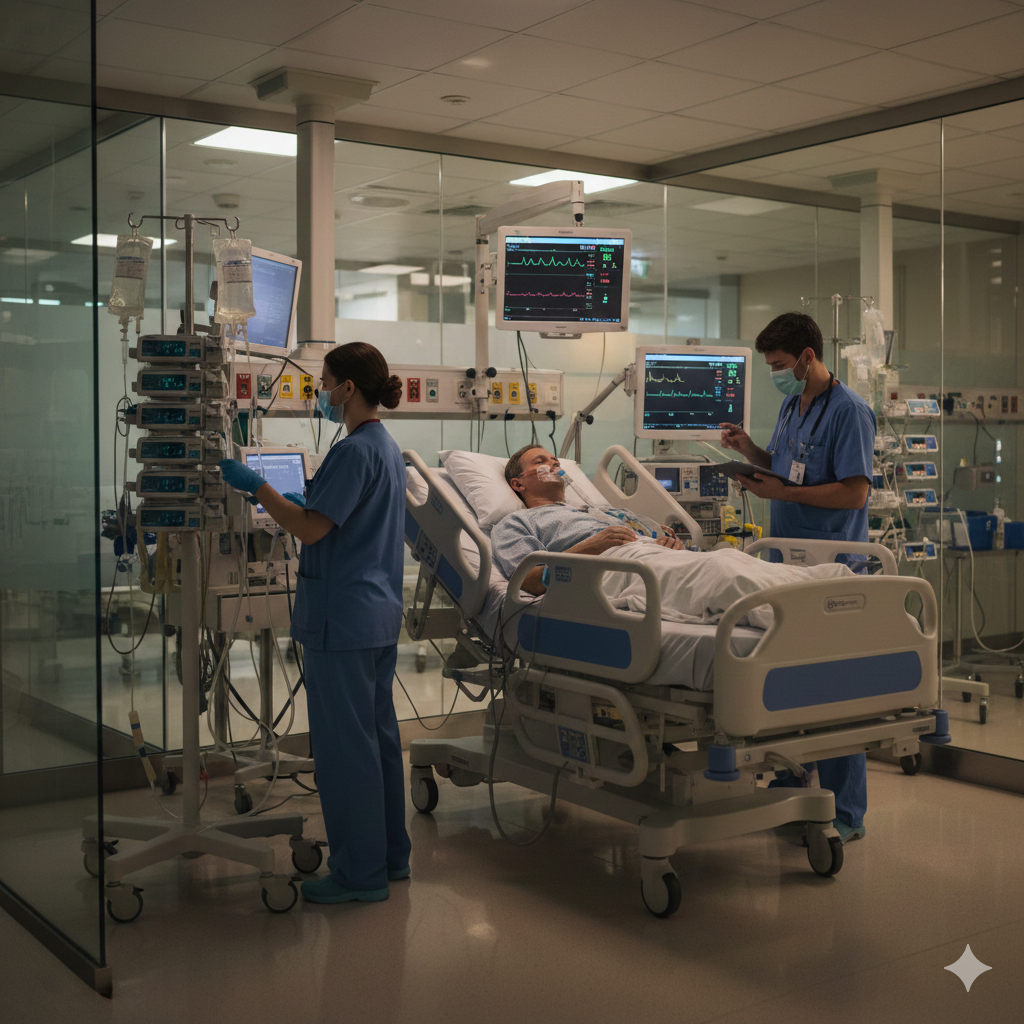- 19, Opp. Ramkrishna Math, Rahate Colony Road, Dhantoli, Nagpur -12, +91 9413564868
ICU & Critical Care
In the realm of cardiovascular health, Critical Care plays an indispensable role in ensuring optimal well-being. As we navigate the intricacies of cardiac health, it becomes imperative to comprehend the nuances of critical care interventions that can make a substantial difference in one’s life. In this comprehensive guide, we delve into the core aspects of critical cardiac care, offering insights that transcend conventional wisdom.
Critical Cardiac Care in Nagpur
The Significance of Immediate Intervention
When it comes to cardiac issues, time is of the essence. Immediate intervention during a cardiac event can be the determining factor between life and death. From recognizing the symptoms to promptly seeking medical assistance, the urgency cannot be overstated. This proactive approach can significantly enhance the chances of a positive outcome and underscores the critical nature of swift action.

Diagnostic Precision: Key to Effective Critical Care
Diagnostic precision is the linchpin of effective critical cardiac care. Modern medical advancements empower healthcare professionals to employ cutting-edge technologies, such as advanced imaging and diagnostic tests, to pinpoint issues with unparalleled accuracy. This precision allows for tailored interventions, ensuring that the treatment plan aligns seamlessly with the patient’s specific cardiac needs.
Implementing Comprehensive Treatment Strategies
Innovations in Medication
A pivotal component of critical cardiac care lies in the realm of medication. Innovations in medication have paved the way for more targeted and efficient treatments. From beta-blockers to anticoagulants, a tailored medication regimen can significantly alleviate symptoms, reduce the risk of complications, and enhance overall cardiac function.
Surgical Advancements: Navigating the Cutting Edge
For cases demanding a more hands-on approach, surgical advancements offer a beacon of hope. Procedures such as angioplasty and bypass surgery have witnessed remarkable progress, with minimally invasive techniques becoming increasingly prevalent. These advancements not only mitigate the physical toll on patients but also expedite the recovery process, fostering a quicker return to normalcy.
When is the Right Time to Consult a Cardiologist in Nagpur?
Recognizing the Signs That Indicate the Need for a Heart Specialist
Persistent Chest Pain or Discomfort
If you experience recurring chest pain, pressure, or discomfort, it could be a sign of a heart condition that requires immediate medical attention.
Shortness of Breath and Fatigue
Unexplained shortness of breath, dizziness, or extreme fatigue may indicate an underlying heart issue that needs evaluation.
High Blood Pressure (Hypertension)
Consistently high blood pressure increases the risk of heart disease and stroke, making regular cardiac check-ups essential.
Irregular Heartbeat or Palpitations
If you notice frequent heart palpitations, rapid or irregular heartbeats, consulting a cardiologist can help diagnose arrhythmia or other conditions.
Family History of Heart Disease
If you have a family history of heart conditions, early screening and preventive measures can help manage potential risks.
History of Diabetes or High Cholesterol
Individuals with diabetes or high cholesterol are at a greater risk of cardiovascular diseases and should undergo regular heart health assessments.

